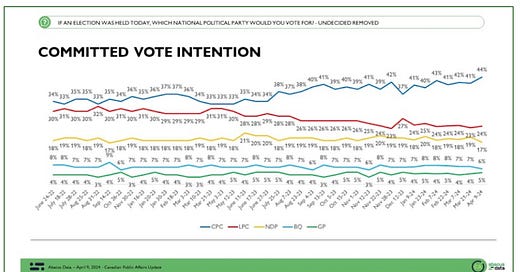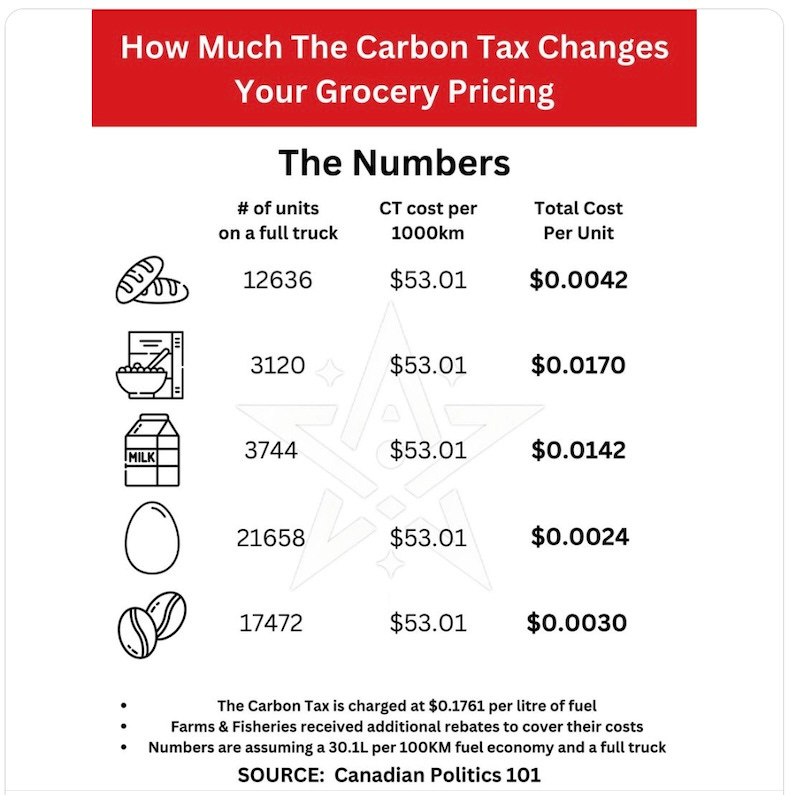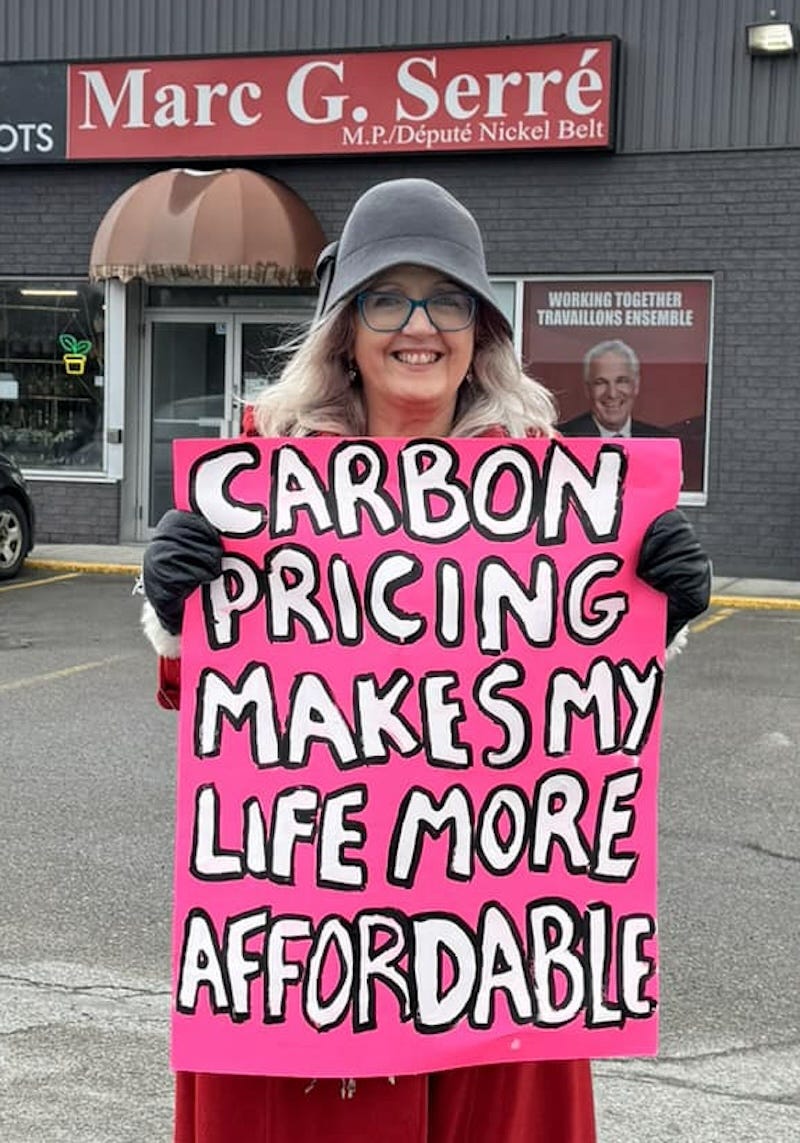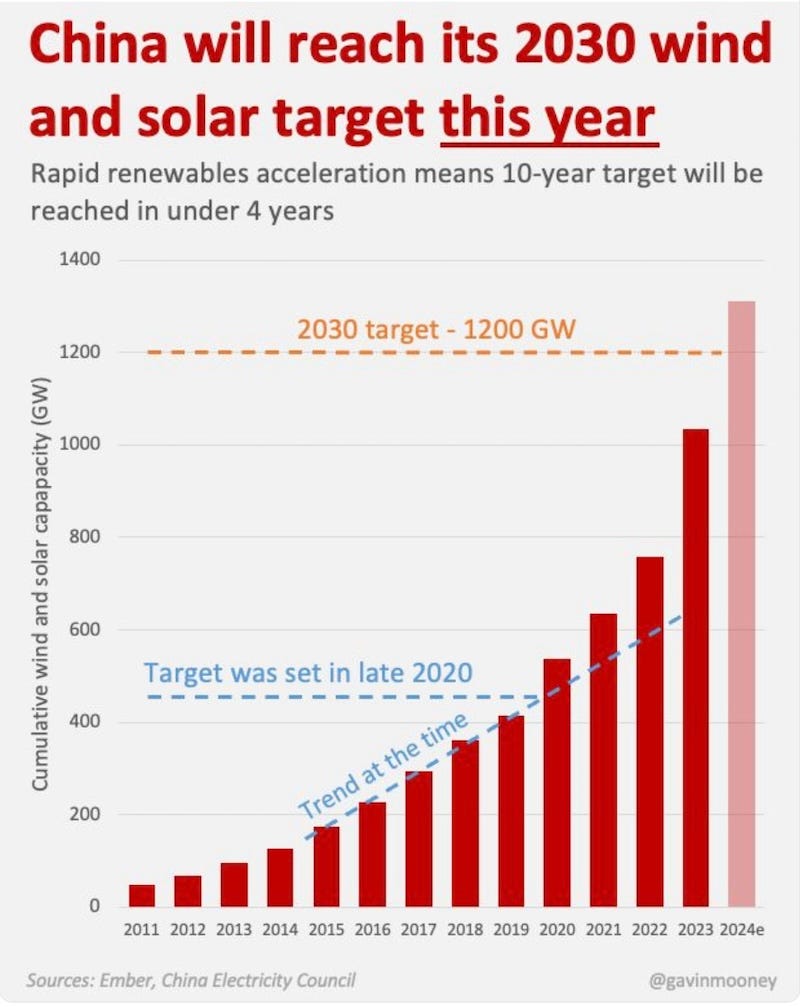Ottawa Can Confront the Cost of Living Crisis through a Climate Lens
Bringing down the cost of living is a great way to fight climate change, as long as energy savings and emission reductions are a through-line for helping the households in greatest need.
With this week’s federal budget and the flurry of daily funding announcements that preceded it, the Trudeau government is setting out to disprove the notion that in partisan politics, and in climate politics, no good deed goes unforgiven.
That’s not their top-line message, of course, nor even their primary motivation. A national housing and affordability crisis is running wild, and Pierre Poilievre’s Conservatives are running 20 points ahead of the incumbent Liberals in the latest Abacus poll. So the two imperatives for Finance Minister Chrystia Freeland when she delivers her budget Tuesday afternoon will be to deliver results that make things better for millions of Canadians—and if she can manage it, to be seen to have done so.
How, you might ask, can the government turn its primary focus away from the climate emergency when the Earth has just recorded its tenth straight month of record warming? When forecasters are predicting a “more explosive” 2024 wildfire season, Alberta is rationing water, and drought is cutting into the renewable electricity that British Columbia, Manitoba, and Quebec should be able to count on from their hydropower dams?
But the other question is how can they not, when Poilievre’s relentless, factually challenged campaign against carbon pricing threatens to deliver a change in government that will burn the rest of the federal climate agenda to the ground. And when a deep-pocketed gas industry is successfully spinning its methane-intensive product as a climate solution, rather than a climate bomb.
To be sure—the misleading messaging needs to be corrected. But we’ll need a wider strategic pivot to avoid another lost decade for anything approaching an effective federal response to climate change. That was something we could ill afford during the Stephen Harper years, and we absolutely don’t have time for now.
Debt Changes Everything
The ad blocker on my laptop has been acting up over the last couple of days. And alongside the unwanted promos for cat food, travel deals, and the Royal Canadian Mint (successful targeting: one out of three), there’s one message that should land powerfully with anyone who’s ever been in a position where they can’t absorb one more expense.
“When you’re in debt, everything looks different,” the ads say. The first one shows a mailbox festooned with pointy spikes. The second features an ATM terminal with all the buttons covered in downward-facing arrows.
This isn’t an endorsement of the debt management company behind the ads, but it’s a great tagline. They’re clearly reading the same widespread public alarm that Poilievre is trying to tap into and amplify with his three-syllable attacks on carbon pricing, and that Trudeau & Co. are scrambling to address with actual policy and financing.
Cue the worthy and necessary debate on whether the government is picking the right policies and pushing them far enough, fast enough.
But along the way, let’s not forget that our living costs are already being driven up by the day-to-day impacts of climate change, and the price tag is rising fast. Just 18 months ago, the Canadian Climate Institute warned that Canadian households are on track to pay $25 billion per year for climate-related losses in 2025, $78 to $101 billion per year by 2050, and $391 to $865 billion per year by century’s end, depending on the pace of future emission reductions.
And at the moment, for all the heated criticism they’ve taken for moving too slowly to drive down climate emissions, we at least have a federal government that understands the connection and isn’t afraid to say so.
But doubling down on core climate messaging when Canadians’ minds and pocketbooks are elsewhere may not be the best winning strategy for protecting the policy and program gains we’ve seen over the last 8½ years. Even or especially when a community is struggling to recover from a flood, wildfire, or heat dome, it’s too easy to come across callous or opportunistic if climate hawks try to treat a local tragedy as a teachable moment.
There’s still a powerful and important story to tell. We urgently need to tell it. But it begins, as it always should, with listening to our friends and family, neighbours and colleagues, understanding what’s keeping them up at night, and discovering together how a climate lens helps them get the things they need and want, faster and better.
Telling the Whole Story
In the moment we’re in, positive talk about practical solutions is just one part of the story. We’ve finally been seeing the other elements roll out over the last month.
• Defend the Plan: The federal government is finally mounting a defence—not necessarily of a federal carbon price, but of its wider climate and carbon strategy. After Prime Minister Justin Trudeau challenged provincial premiers who didn’t like the carbon tax to come up with their own alternatives, Manitoba and Nova Scotia took him at his word—leaving it to Trudeau to point out that the federal price was never meant to deter provincial action.
“Every province has the opportunity to put forward its own plan as long as they are fighting climate change to the same level that we’re asking all other Canadians to do,” the PM said. “That’s what a federal backstop is. But we’re not seeing detailed plans from the premiers on this. They’d much rather try to complain about it and make political hay.”
That message about a federal backstop is now nearly a decade old, a legacy of the patchwork of provincial climate policies that Team Trudeau inherited when they took office in 2015. Through a decade of Harper-era hostility to climate action, different provinces had to come up with their own responses, and the only way to build a pan-Canadian plan was to set a common, minimum target that everyone could meet in the way they preferred. Articulating that now brings Trudeau back to first principles and, intriguingly, opens the door to a constructive solution that could largely blunt Poilievre’s attack.
• Put the Blame Where It Belongs: The cost of living crisis is a crushing reality, and rising energy prices are part of the problem. But Poilievre is playing the worst kind of misleading political game when he tries to pin those problems on a carbon price whose major weakness is that it has too small an impact on prices to deliver the emission reductions its proponents crave.
“Since early January, the cost of a litre of gasoline has gone up 20¢, and critics of the carbon tax haven’t batted an eye,” veteran climate analyst Dan Woynillowicz, principal at Polaris Strategy, wrote on LinkedIn late last month. “But a 3¢ [carbon price] increase on April 1—which will be rebated to Canadians—is a crisis.”
To tackle affordability, he added, political leaders “need to focus on the things that are actually making life less affordable,” a list that includes the global price of oil and gas but not the carbon price.
Or, if they really wanted to get this right, political communicators of all partisan stripes could take their cues from this handy chart:
• ‘Open Up the Doors and Windows’: Decades ago, responding to an issue that was pretty much as contentious as carbon pricing, I heard a conference speaker urge combatants on all sides to “open up all the doors and windows, to err on the side of having too many friends and not enough enemies.”
It won’t always work. But there’s a lot to be said for showing up at the endless anti-carbon price rallies that Poilievre and his team have been orchestrating—not to pick fights with people on the other side, but to try to connect, look for dialogue and common ground where possible, and dial down the manufactured intensity.
“Carbon pricing makes my life more affordable” was the message on the placard that veteran climate hawk and relentless carbon pricing advocate Cathy Orlando brought to a recent rally organized by a local Conservative MP in Sudbury, outside the constituency office of an adjacent Liberal backbencher.
"If you're against carbon pricing, can you please show us your plan?” Orlando asked. “Because the climate crisis is costing us a lot more money and will continue to do so even more."
“This event I crashed was constructed to stir up dissent and leverage distorted narratives to capture media attention,” Orlando told The Weekender in an email. “So I intervened with a sign presenting a simple truth: carbon pricing makes my life more affordable. My intended audience comprised those straddling the fence who I hoped would read articles, social media posts, or hear me on the radio.”
She stressed the importance of countering the “group think” that alt-right ideologues are stirring up to divide the country and stop climate action in its tracks.
“People are being bombarded with disinformation and given a sense of false security,” she wrote. “It is all very tribal and manipulative. Standing on the sidelines doing nothing is the worst thing we could do.”
• Reach Outside the Bubble: It’s never been more important to advocate for the unfinished business on the federal climate agenda—beginning with the Sustainable Jobs Act, the Climate-Aligned Finance Act, federal methane regulations, and of course the federal cap on oil and gas emissions.
But that’s just half the job. If we already had enough public support for the climate action the science demands, it would already be happening. And we won’t build that critical mass without starting from the issues that matter most to people who aren’t already inside the climate “bubble”—as the federal government is doing—then making sure we address them through a climate lens.
That strategy only works as a response to the climate emergency if energy savings and emission reductions are a through-line for the affordability measures the country so desperately needs.
We know that it costs massively less to heat and cool a home with a heat pump, rather than fossil fuels…that public transit costs less than car ownership, and puts a major dent in rush hour traffic…that bike and walking paths make it faster and safer to get around town. And we know that emission reduction measures can deliver the greatest savings to the households that need them most. But only if the programs are designed to maximize energy efficiency and energy justice.
Over the next 12 to 18 months, nothing will be more important than getting that program design right, delivering the cost savings people need, and showing by doing that climate action makes life better and more affordable. We have to keep hammering away at that message until people can see the reality on their energy bills, can track the savings on their credit union or bank statement.
If we fail, we will indeed end up learning that no good deed goes unforgiven, at a time when we have no time to waste in the energy and climate transition.
Mitchell Beer traces his background in renewable energy and energy efficiency back to 1977, in climate change to 1997. Now he and the rest of the Energy Mix team scan 1,200 news headlines a week to pull together The Energy Mix, The Energy Mix Weekender, and our weekly feature digests, Cities & Communities and Heat & Power.
Chart of the Week
‘Turning Point’ Climate Ruling in European Court Could Reshape Canadian Climate Law
Scientists Test ‘Insane’ Plan to Slow Ice Melt in Canadian Arctic
EV Fleets Earn More Than $10K Per Vehicle in Australian V2G Pilot
Ottawa Won’t Blink on Oil and Gas Emissions Cap, Trudeau Tells Oilpatch
Federal Budget to Include Revamped Greener Homes Grant
Earth ‘Between a Rock and a Charred Place’ as 57 Companies Emit Majority of CO2
Canada’s ‘Immense’ Hydropower Offers Sufficient Grid Backup, U.S. Researcher Suggests
Critics Scorch Science-Based Targets Initiative for Allowing Carbon Offsets for Scope 3 Emissions
Remembering Matthew Chapman, 1983-2024
World’s biggest economies pumping billions into fossil fuels in poor nations (The Guardian)
Big companies' emissions goals are too weak, report says (Reuters)
‘Detached from reality’: researchers say Pathways Alliance misleading public with greenwashing (The Narwhal)
Why is Ontario taking from homeowners to subsidize gas companies? (Globe and Mail)
Zurich Insurance to Halt Coverage of New Fossil-Fuel Exposures (Bloomberg)
Massive investment is needed in sustainable infrastructure to build climate change resilience (OECD)
Southern Africa faces hunger as el Niño drought kills crops (Reuters)
Blackouts spark fears of grid ‘collapse’ in Brazil’s biggest city (Financial Times)
Colombia capital Bogotá to ration water as reservoirs dry (Reuters)
U.S. EPA’s first chemical plant rule in 20 years targets polluters in Louisiana and Texas (Grist)
Environmentalism could stop the clean-energy transition (Washington Post)











How can we relay a positive message on our own social media which will evoke correct belief with those who now believe the disinformation/misinformation being promoted on PP’s campaign ? Could you create videos to post on Tic Toc to catch attention and promote truth?